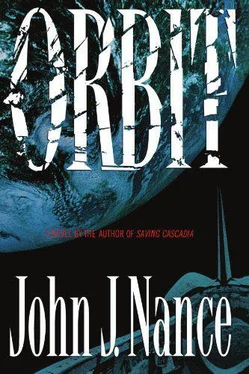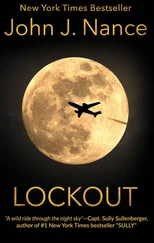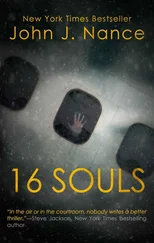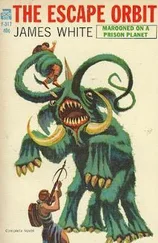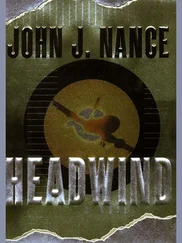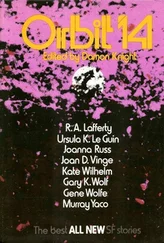What is that?
Something has changed, Kip realizes. The sound of the air conditioning, pressurization system more or less wobbled for a second. Once again he scans the panel, his heart in his throat. If that system goes down, or the fuel cells fail, the end will come a lot quicker.
But once more everything appears stable and his ears aren’t clicking, and when he finds it, the cabin pressure indication looks normal. Slowly—as if looking away would allow the indications to start going sour and only continuous scrutiny could prevent such—he disconnects once again and forces himself back to what he was writing.
Despite all the dour messages I got as a kid, I grew up kinda liking me. That was actually a big victory in itself, because if I had applied all the religious terror that both sides of my parental equation taught me, it was clear I was on a fast-track to hell, mainly for being an average teenage boy. In truth, I was a pretty good and honest kid, but since I was made to feel guilty about pretty much everything, that set the stage for my thinking as an adult.
When the very act of being a normal human is labeled bad and sinful, your guilt becomes an ever-present companion. Like Eeyore and his tail. I feel guilty for so much in my life, and sometimes I feel guilty even for feeling guilty. Thoreau said in Walden : “The mass of men lead lives of quiet desperation.” Good Lord, yes, that’s been me. And when it comes to courage to break out, yes, I’ve been a failure. Don’t abused women do that, too? Just take it and hope things will get better?
Feeling guilty was engineered into my mental operating system, but you know something? How can we really be all that bad if God put us here? Aren’t we defaming Him to suggest such a thing? Where does society get off deciding that human beings are inherently so bad and flawed and evil that we have to spend our lives feeling guilty about being us?
Here I sit, three hundred and ten miles and an impenetrable distance above my planet, and it’s literally like pulling the lens back and getting a broader view. My God, it makes me want to yell at everyone down there: Don’t waste time feeling bad about being an imperfect human. Acknowledge your mistakes, correct them, and go on, but take the risk of enjoying what you’ve got, and be brave enough to change what doesn’t work. Don’t be depressed by those who want us all to feel guilty, about being busy, about being American, or about not conforming to someone else’s stereotype.
And if I truly did have a bullhorn loud enough to be heard down there, I’d say one more thing, loud and clear: Tell your kids how much you love them and how proud you are of them, and spend as much time with them as you possibly can (it’s so sad how few of us really do that well). You see, I’ll never have another chance to tell my son and my daughters how much their dad loves them. But all those moms and dads down there still do. What a gift.
KALGOORLIE-BOULDER, WESTERN AUSTRALIA, MAY 19, 7:45 A.M. PACIFIC/10:45 P.M. WST
The chances of remaining anonymous being slim to none, Alastair forces himself to head downstairs in search of his father. Scenes from the Green Mile come to mind as he contemplates the potential ferocity of his dad’s reaction.
Dead boy walking! he thinks, feeling ill.
It was hard enough to feign innocence this morning before school, especially with the arrival of two more e-mails from ABC, quickly deleted. But the live narrative from space he illegally uncovered is now a worldwide story, and even his father is captivated by it.
Dad has spent the whole evening in front of the telly, darting to the kitchen to grab his food and return, one eye kept on the words crawling across the bottom of the screen.
His mother, too, is hooked—worse than any soap opera. She, too, wanted to stay in front of the screen, so dinner became a can of heated chili.
According to his father, the local search for the hacker who started it will be successful.
“Why, Dad?” Alastair asks, trying hard to keep his voice from shaking.
“Because, ultimately, the police will force the Internet provider involved to divulge the owner’s name. They may want to thank him, but they’ll probably prosecute him, too. If he was my kid, I’d probably strangle him with the cord to his mouse.”
It was all Alastair could do to keep a plastic smile on his face and nod as his stomach twisted. He flew to his room, but another round of pleading e-mails from the Australian network pushed him past the tipping point, convincing him to confess now, rather than fessing up after a public discovery as they haul him to the nearest jail.
“Dad?”
His folks’ bedroom is dark and the door is open, and as he lets his eyes adjust, he can just make out his mother’s form under the covers, her long, sandy hair spilling over the side of the bed. His father’s side is empty, so he continues down the hallway to the living room, practicing his opening line.
Dad, there’s something I have to tell you. No. Dad, I need to tell you something important. Dammit, no. Dad, sit down. I have a confession to make.
The TV is still on, of course. He could hear it from his room. And his father is still in the same spot he was an hour ago, on the couch, leaning forward, his hands clasped, concentrating lest he miss reading a word. He’s wearing a pullover, and as Alastair draws closer he can see his father holding what looks like a handkerchief.
The message on the screen is only one line long and moving, but he lets his eyes follow it for a second, recognizing enough to know that the man stuck in orbit—Kip—is talking about his son in the Air Force Academy again. Alastair doesn’t understand why the son is so angry, but the father’s remorse touches even Alastair’s tough father.
“Dad?” he says, tentatively, barely above a whisper, as if failing to be heard could be an escape pass and he can flee back to his room.
There’s no response, so he narrows the distance to five feet and tries again, forcing himself to speak louder.
“Dad?” he begins again, and this time he sees his father’s broad-shouldered form jump slightly.
“Yes, son?” He’s still riveted on the screen, and all Alastair can see is the back of his head.
“I… have something to tell you, Dad.”
“Something to sell me?”
“No. No, tell you. Something to tell you.”
“Right. Go ahead.”
Weird, Alastair thinks. Why isn’t he turning around to look me in the eye like he always does?
“Dad, that kid they’re looking for? The one who found that space tourist’s transmission?”
“Yes?”
“I… should have told you before…”
His father is turning around now and Alastair can see his father’s eyes are red-rimmed, his face damp, as if he’d been crying. He’s never seen his dad cry, so maybe it’s allergies. The thought takes him away from his terror.
“Should have told me what, son? You know who the fellow is?”
“Yes.”
“Well, tell me.”
He swallows and dives off the high board, sure he’ll hit cement.
“It was me, Dad. I did it. I’m so sorry! I know I promised I’d never hack into anything again, but I…”
His sentence is interrupted by the frightening speed of his father’s six-foot frame rising from the chair in a heartbeat and covering the distance between them. Alastair flinches and tries to step back, totally unprepared to be scooped up in a bear hug.
“Dad? Are you okay?” Alastair asks after a few seconds of pure shock, straining to breathe.
His father nods at first instead of speaking, which is strange. When he finds his voice it’s a strained, reedy version of it.
Читать дальше
